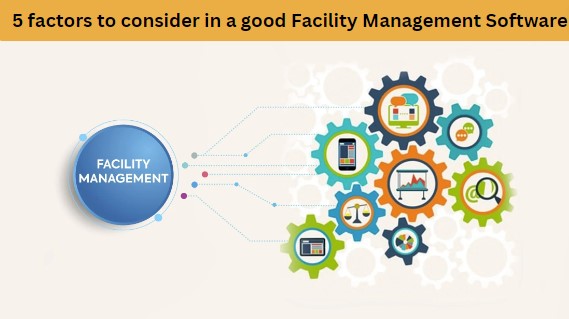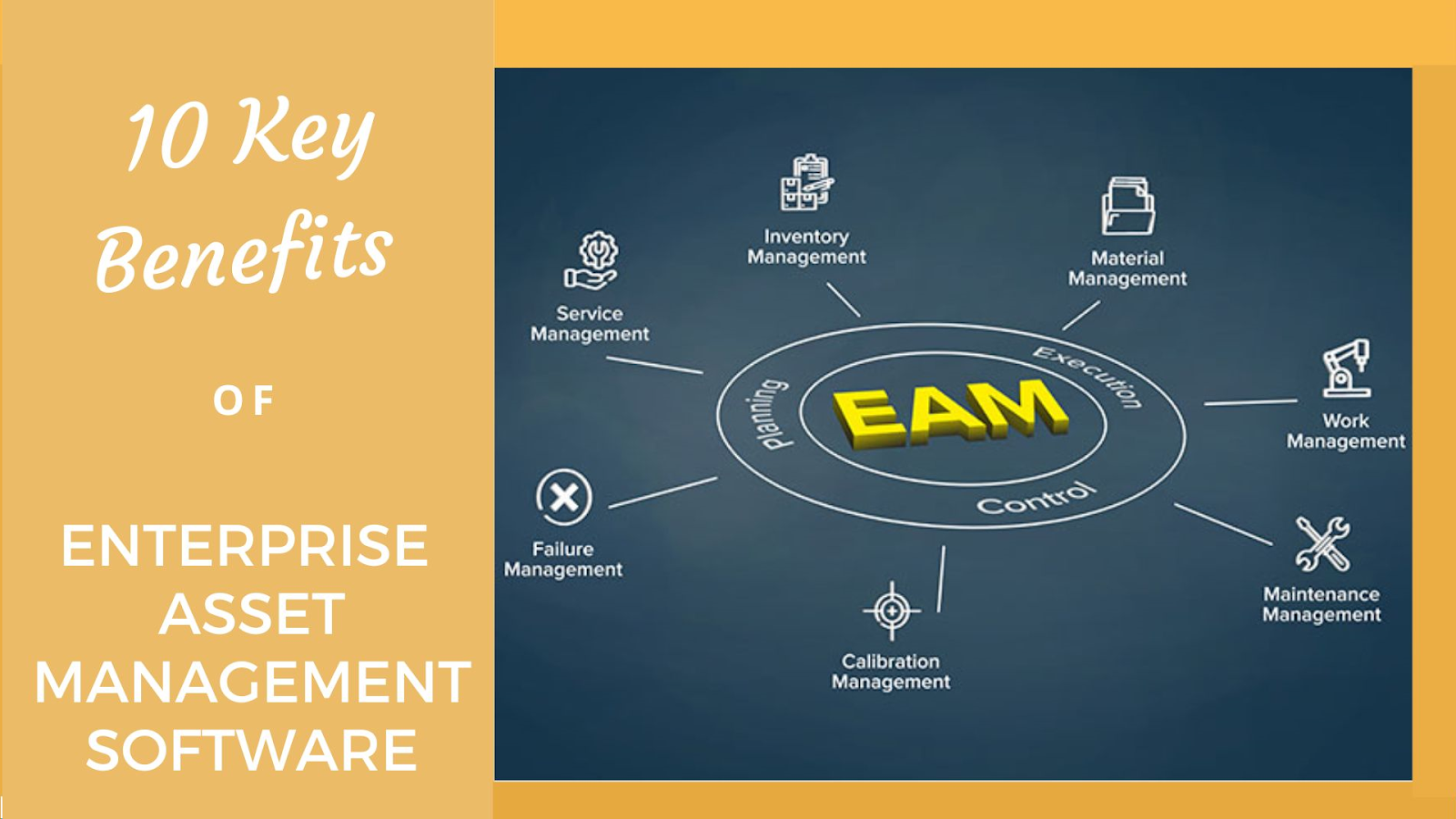
5 things to look for in Facility Management Software
Madhurima Sanyal |
17 Jun 2024 |
14:04 PM
- Understanding the Role of Facilities Management Software
- Key Elements for Streamlined Operations
- 5 factors to consider in an ideal Facility management software
- Optimizing Maintenance Management
- How Proptor is an Ideal Choice for Facility Management Software
- Importance of Maintenance Management software
- Conclusion

10 Key Benefits of Enterprise Asset Management Software
Shubham Vakharia 13 May 2024 | 10:24 AMDiscover the power of Enterprise Asset Management (EAM). Save costs, boost efficiency, and make informed decisions. EAM works for various industries. Get started today! ...
Facilities Management Software (FMS) plays an indispensable role in modern business operations. Whether it's ensuring optimal facility functioning or streamlining maintenance tasks, the right FMS can significantly impact overall efficiency. Let's delve into the key aspects you should consider when evaluating these solutions.
Understanding the Role of Facilities Management Software
Facilities Management Software is a comprehensive platform designed to oversee and optimize various aspects of facility operations. It acts as a central hub, facilitating the management of tasks such as maintenance, asset tracking, inventory management, and space utilization.
Essential Features to Seek
When exploring FMS options, understanding the essential features is crucial. Robust FMS should encompass a range of functionalities, including but not limited to preventive maintenance scheduling, inventory tracking, and automated solutions for managing assets effectively.
Examining Critical Components
In your search for a good Facility Management Software, consider the critical components that align with your organization's specific needs. Scalability, user-friendliness, and integration capabilities with existing systems are paramount factors to evaluate when assessing different software options.
Key Elements for Streamlined Operations
Streamlining operations through Facility Maintenance software involves seeking key elements that contribute to efficiency. These include real-time data accessibility, mobile capabilities for on-the-go management, and space management tools, all of which ensure smoother facility operations.
As you embark on this journey to select the right Facilities Management Software for your organization, a deeper understanding of these aspects will empower you to make informed decisions and optimize your operational workflows.
5 factors to consider in an ideal Facility management software
Comprehensive Feature Set: A robust Facility Management Software features should encompass a comprehensive set of features tailored to meet diverse facility management needs. Look for software that covers essential aspects such as preventive maintenance schedules, asset and inventory management, space utilization optimization, work order management, and compliance tracking. Ensuring these features align with your specific facility requirements is crucial for seamless operations.
User-Friendly Interface and Accessibility: Opt for Facility Management software with an intuitive interface that's easy to navigate. User-friendliness is key, especially if multiple team members will access and utilize the software. It should offer a seamless experience for technicians, facility managers, and other stakeholders. Additionally, consider its accessibility on various devices and platforms, including mobile capabilities for on-the-go management.
Scalability and Integration: An ideal Facility Management software should be scalable, capable of adapting to your organization's growth and evolving needs. It should also integrate seamlessly with existing systems, such as Enterprise Resource Planning (ERP) software or Internet of Things (IoT) devices, ensuring a unified approach to facility management without disrupting current workflows.
Reliability and Support: Look for software from reputable vendors with a track record of reliability and ongoing support. Evaluate factors like system uptime, data security measures, and the vendor's responsiveness to inquiries or technical issues. Opt for solutions that offer regular updates, maintenance, and reliable customer support to address any concerns promptly.
Cost-effectiveness and ROI: While assessing Facility Management software feature options, consider the overall cost of implementation, including licensing fees, training, and ongoing support. Look beyond the initial investment and focus on the long-term return on investment (ROI). Calculate how the software can help reduce maintenance costs, improve operational efficiency, and minimize downtime, ultimately contributing to a positive bottom line.
Choosing the right Facility Management Software involves careful consideration of these factors to ensure that it aligns with your organization's specific needs, facilitates efficient operations, and delivers tangible benefits in the long run.
Optimizing Maintenance Management
Ensuring efficient maintenance is pivotal for the seamless functioning of any establishment in Facility Management software. Let's explore how Proptor stands out as an ideal choice for FMS, the importance of maintenance management software, and the impact of proactive maintenance on operational efficiency.
How Proptor is an Ideal Choice for Facility Management Software
Proptor offers a comprehensive suite of features designed to streamline maintenance tasks. Its intuitive interface simplifies task allocation, work order management, and asset tracking.
Proptor's scalability and integration capabilities ensure a seamless transition, making it a versatile and adaptable choice for diverse facility management needs.
Importance of Maintenance Management software
Maintenance management software, such as Proptor, plays a fundamental role in optimizing facility operations. It centralizes maintenance tasks, providing real-time insights into asset health, historical data, and upcoming maintenance schedules. Proptor's data-driven approach empowers facility managers to make informed decisions, ultimately reducing downtime and enhancing productivity.
Preventive Maintenance: Enhancing Efficiency
Preventive maintenance is a cornerstone of effective facility management. Proptor's preventive maintenance module facilitates scheduled inspections, identifies potential issues proactively, and mitigates risks before they escalate. This approach not only extends the lifespan of assets but also minimizes unexpected breakdowns, leading to cost savings and improved operational efficiency.
By leveraging Proptor's advanced features and preventive maintenance capabilities, facility managers can optimize their maintenance strategies, minimize disruptions, and ensure the smooth functioning of their facilities.
Asset Management and Tracking
Effective asset maintenance and tracking are crucial components of Facility Management Software features. Let's explore how maximizing asset utilization and implementing efficient asset tracking solutions can significantly enhance facility operations.
Maximizing Asset Utilization
A good Facility Management software should facilitate the optimization of asset utilization across facilities. Through intelligent resource allocation and scheduling functionalities, such software maximizes asset usage, minimizing downtime, and ensuring that every asset contributes to operational efficiency. Utilizing FMS tools for comprehensive asset lifecycle management ensures that each asset operates at its peak potential, resulting in cost savings and enhanced productivity.
Efficient Asset Tracking Solutions
Efficient asset tracking is a hallmark of a robust Facility Management software. Implementing tracking solutions embedded within the software enables real-time monitoring of asset locations, status, and maintenance history. This proactive approach aids in preventing asset loss, streamlining inventory management, and enabling timely maintenance interventions. FMS platforms with RFID tagging, barcode scanning, or GPS tracking features offer precise asset visibility, empowering facility managers to make informed decisions regarding asset allocation and maintenance.
By harnessing the power of Facility Management Software features for asset management and tracking, organizations can optimize resource utilization, reduce operational inefficiencies, and ensure that assets operate at peak performance levels.
Enhanced Efficiency and Productivity
Optimizing efficiency and productivity stands as a cornerstone for seamless operations. Let's explore how leveraging a good Facility Management Software can significantly boost productivity and reduce costs through efficient management practices.
Increasing Productivity with Facility Management Software
Implementing robust enhances productivity by streamlining tasks, automating workflows, and facilitating streamlined collaboration among facility teams. By providing a centralized platform for communication and task allocation, Facility Management Software features improve operational efficiency, enabling teams to accomplish more in less time.
Utilizing predictive analytics and real-time insights embedded within Facility Management Software empowers managers to make data-driven decisions, further enhancing productivity across facilities
Cost-Efficiency and Downtime Reduction
An ideal Facility Management Software not only boosts productivity but also focuses on cost-efficiency and downtime reduction. Through preventive maintenance scheduling, efficient resource allocation, and predictive analytics, FMS minimizes unexpected breakdowns and reduces maintenance costs.
The software's ability to identify potential issues before they escalate translates into decreased downtime, ensuring uninterrupted operations and ultimately contributing to significant cost savings.
By harnessing the power of Facility Management Software features to increase productivity and reduce costs, organizations can achieve enhanced operational efficiency and ensure a competitive edge in the industry.
Conclusion
As the landscape of facility management evolves, the selection of the right Facility Management Software becomes pivotal. It's essential to consider various aspects to ensure that the chosen software aligns with your organization's specific needs. Let's explore the key facets guiding the selection process.
Making Informed Decisions: Choosing the Right Facilities Management Software
Selecting the ideal Facility Management Software involves a comprehensive evaluation process. Consider factors such as scalability, cus`1tomization options, ease of integration, and user-friendliness. It's crucial to assess if the software aligns with your facility's size, industry requirements, and growth projections. Moreover, examining features such as asset management, preventive maintenance capabilities, inventory tracking, and compliance functionalities becomes imperative.
Facility managers must deliberate on these five critical aspects while choosing their FMS:
-
Scalability: Ensure the software can accommodate your facility's growth without compromising efficiency.
-
Comprehensive Features: Look for functionalities crucial to your operations, from asset management to compliance and preventive maintenance.
-
Integration and User Interface: Assess ease of integration with existing systems and the software's user-friendliness for your team.
-
Customization Options: Seek customizable features to tailor the software to your specific needs.
-
Cost and Return on Investment: Evaluate the cost against the software's capabilities and its potential to bring a return on investment.
By meticulously considering these factors, facility managers can make an informed decision, ensuring they select an FMS that not only meets current needs but also caters to future growth and operational requirements.
Choosing the right Facilities Management Software lays the groundwork for streamlined operations, enhanced productivity, and optimized facility management processes.